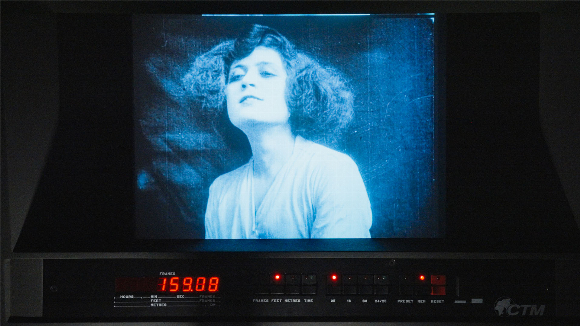 Italy, US 2025, 89 min, HD
Italy, US 2025, 89 min, HDA Parallelo 41 Produzioni Production
by Valerio Ciriaci
Elvira Notari - Beyond Silence
Elvira Notari, Italy’s first woman film director, was long relegated to the margins of history. A pioneer of Neapolitan silent cinema, she made over sixty films blending popular melodrama and raw street life, captivating audiences from Naples to America’s Little Italies. Despite her success, censorship and family tensions consigned her into obscurity. Today, memories and reinvention bring her back into focus in a vivid new portrait.163 minutes: three feature films, two short documentaries, and a handful of fragments are all that remain of Elvira Notari’s work. Little remains of her life beyond the screen: no letters, no diaries, and only a few faded photographs. Yet today, Notari stands at the center of a growing revival, her films increasingly sought after for retrospectives and research projects aimed at restoring her legacy.
This rediscovery did not happen overnight. In the 1970s, a small group of scholars began unearthing Elvira Notari’s history, challenging the long-held view that Neapolitan silent cinema was a minor chapter compared to the more celebrated cinematic output from Northern Italy. As they delved into archives, sifting through dusty photographs and yellowed newspaper clippings, researchers like Vittorio Martinelli, Mario Franco, and Giuliana Bruno slowly started to piece together her story.
Born in Salerno, Elvira moved with her family to Naples as a young woman. There, she met the photographer Nicola Notari, who would become her husband and creative partner. In the early twentieth century, as the new medium of cinema spread like wildfire through the city, Elvira Notari persuaded Nicola to join her in a new venture. Together they founded Dora Films, first specializing in hand-coloring reels before moving to their own independent productions. The company operated as a family-run workshop: Elvira wrote, directed, and produced all their films, while Nicola operated the camera, their son Edoardo appeared as a recurring actor, and friends and family rounded out the casts and crews.
Notari’s films were deeply rooted in local folklore, drawing on Neapolitan songs and adapting them for the screen in the tradition of the 'sceneggiata' theatrical genre. Stories of intrigue, betrayal, and crimes of passion were intertwined with documentary-style footage of the city: its lively streets and beautiful vistas, but also the hardships of its poorer quarters. Her filming in the streets and immersion in real working-class settings anticipated many of the methods that would later define Italian neorealism. Yet within her realist gaze, moments of dreamlike invention emerge: abstract, superimposed, and colorized images that transform the everyday into a realm of imagination and wonder. Among her characters, modern women stand out–figures who embody a sensuality beyond the strict conventions of their time, challenging the rigid divide between victim and femme fatale.
By the late 1920s, Notari’s films faced growing scrutiny from Fascist censors determined to impose a new national image, purified of regional differences and tales of criminality. To survive, Dora Films shifted its focus to the United States, distributing its productions widely among Italian immigrant communities. An enthusiastic response from these audiences allowed the company to endure even as many others in Naples were forced to close. And alongside its feature films, Dora Films also began producing short documentaries capturing daily life in Southern Italy, commissioned by migrants yearning for a glimpse of home.
In 1930, Notari withdrew from filmmaking and retreated to Cava de' Tirreni. Her reasons remain uncertain: was the burden of censorship, the challenges of the new sound era, or unresolved family tensions? Recent discoveries revealed that Elvira and Nicola had a third daughter, Maria, whom they entrusted to the care – a painful decision made perhaps to preserve the fragile balance between work and raising a third child, and one that created rifts in the family. When Notari left Naples, she went alone. She died in 1946, far from the public eye. For decades, the loss of her films and the silence around her name kept her legacy at the margins of cinema history.
Today, what began as a fragile scholarly effort is becoming a wide-reaching cultural groundswell. At its center are artists – women above all – who are reimagining Elvira Notari’s work in new creative forms. Flavia Amabile, author of the biographical novel Elvira, explores the tension between motherhood, artistic ambition, and entrepreneurship. Photographer Cristina Vatielli, working with actress Teresa Saponangelo, re-evokes Elvira’s presence in the streets of Naples and explores her bond with Nicola. Francesca Consonni leads a community embroidery workshop where frames from Notari’s films are linked to present-day experiences through collective craft.
Through these intersections of past and present, ELVIRA NOTARI - BEYOND SILENCE celebrates an artist whose vision continues to inspire, and a protagonist whose story is still being written.
Venice Film Festival (Classics)
